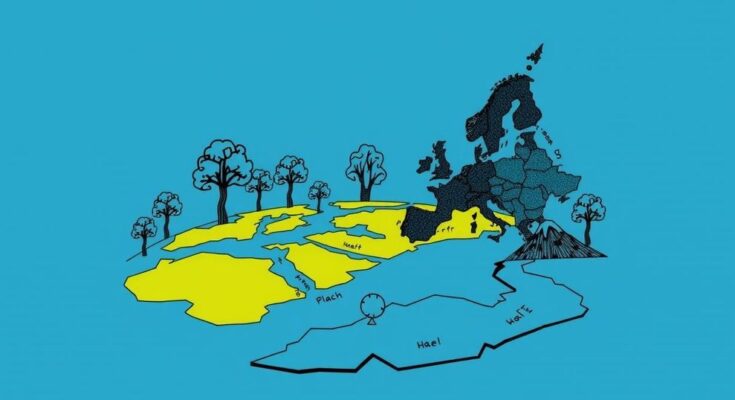The ICJ in The Hague has started hearings regarding the legal obligations of UN member states to protect against climate change. Initiated by Pacific Islanders, the case aims to highlight youth rights impacted by climate issues. The advisory opinion will address international law’s responsibility towards climate action, with implications for negotiations on climate finance. Key figures stress the opinion’s moral significance, despite its non-binding nature, as a means to compel compliance in addressing climate challenges.
The International Court of Justice (ICJ) has commenced its hearings on a landmark climate change case today, December 2, 2024, in The Hague. This unprecedented case, initiated by the Pacific Islands Students Fighting Climate Change (PISFCC), seeks to clarify the legal obligations of UN member states regarding the protection of vulnerable populations and ecosystems against climate change. A total of 98 countries, including Vanuatu—which has declared its commitment to this cause—will present their arguments over the next fortnight.
Durable legal reforms prompted by the anticipated advisory opinion are expected to empower youth in climate-impacted nations by underscoring their rights in discussions surrounding climate-related challenges. Grace Malie, a prominent youth activist from Tuvalu, emphasizes that the court’s decisions will serve as a “baseline that cannot be ignored” in global climate negotiations, ensuring that the existential concerns of Pacific youth hold more weight.
The proceedings will examine various international legal frameworks, including the UN Charter and the Paris Agreement, to assess states’ responsibilities to mitigate climate impacts. Attorney General Graham Leung of Fiji advocates for the significance of ICJ’s advisory opinion, which, while not legally binding, will have considerable moral authority, establishing an ethical precedent for international action.
With widespread critiques of existing climate finance mechanisms and inadequate Nationally Determined Contributions (NDCs), this case could reshape the landscape for future negotiations on climate finance and loss and damage provisions. Leading environmental advocates, including WWF’s Manuel Pulgar-Vidal, highlight that most countries have not met their emission reduction targets, thus the advisory opinion could catalyze stronger compliance and proactive measures for climate action.
As climate change exacerbates global environmental challenges, international legal frameworks are increasingly scrutinized to ensure that nations fulfill their duties to protect the planet. The ICJ’s hearings stem from a growing recognition among youth activists and vulnerable island nations that international law must evolve to reflect the urgent realities posed by climate change. The case initiated by PISFCC, alongside support from nations like Vanuatu, aims to answer critical questions regarding the legal responsibilities of governments to safeguard vulnerable communities from the adverse effects of climate change. The anticipation surrounding the ICJ’s advisory opinion underscores efforts to forge stronger legal commitments and moral imperatives for climate action across the globe.
The commencement of ICJ hearings marks a pivotal moment in the intersection of legal, environmental, and humanitarian concerns. By addressing states’ obligations to mitigate the impacts of climate change on vulnerable populations, especially youth in island nations, the court holds the potential to reshape international legal frameworks. The advisory opinion is poised to establish a moral benchmark that could significantly influence future climate negotiations, emphasizing the urgent need for action and accountability among nations.
Original Source: www.ipsnews.net




